Some are calling it America’s Second Civil War, others say it’s a repeat of 1968’s summer of protests. Still more believe we’re in a decades-long existential crisis that started with the rise of the internet and turn-of-the-century anti-globalization protests, notes Ryan Heath, the author of Global Translations, POLITICO’s global newsletter and podcast:
Two threads are common to how outsiders see the demonstrations, looting and presidential invective that rained down across all 50 U.S. states this week. One is the idea that racism is something that affects the U.S. much more than their own society. Second, Americans seem to be fighting to salvage their democracy, the way Ukrainians or Hong Kongers might.
This week delivered a “treasure trove” of propaganda material to Beijing, diplomats tell my colleague Nahal Toosi. The factory line of Chinese tweets, broadcasts and editorials on George Floyd’s death and the ensuing protests reflect that, as does the fact that authoritarians leaped in to criticize the U.S. Listen to How the World is Watching America Right Now.
 U.S. democracy is “being tested as never before in the memory of most living Americans,” according to the National Endowment for Democracy (NED). Injustices that are deeply rooted in history and society are hard to eradicate, here at home as well as abroad, it said in a statement released today:
U.S. democracy is “being tested as never before in the memory of most living Americans,” according to the National Endowment for Democracy (NED). Injustices that are deeply rooted in history and society are hard to eradicate, here at home as well as abroad, it said in a statement released today:
The struggle for justice is continuous, and it is our hope that the outrage unleashed by the killings of George Floyd, Ahmaud Arbery, Breonna Taylor, and others on too long a list, will generate new political will, across our partisan divides, to reform and improve our democracy. Such a movement is needed not just for the sake of our own country, but for the benefit of brave people on the frontlines of democratic struggles around the world who share our commitment to human freedom and equality under the rule of law.
German Chancellor Angela Merkel on Thursday expressed her belief in the democratic power of the US to deal with the situation (above).
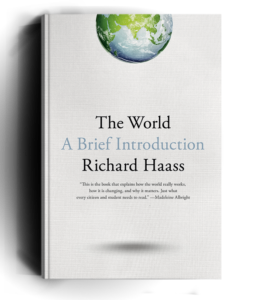 Recent developments could have a profound and enduring impact on American influence, says Richard Haass, President of the Council on Foreign Relations and the author of The World: A Brief Introduction. Unless the United States is able to come together to address its persistent societal and political divides, global prospects for democracy may weaken, friends and allies of the United States may rethink their decision to place their security in American hands, and competitors may dispense with some or all of their traditional caution, he writes for Foreign Affairs:
Recent developments could have a profound and enduring impact on American influence, says Richard Haass, President of the Council on Foreign Relations and the author of The World: A Brief Introduction. Unless the United States is able to come together to address its persistent societal and political divides, global prospects for democracy may weaken, friends and allies of the United States may rethink their decision to place their security in American hands, and competitors may dispense with some or all of their traditional caution, he writes for Foreign Affairs:
Human rights and democracy promotion have long been a staple of American foreign policy—partly for normative reasons, because Americans believe that such principles enhance the meaning and value of life, and partly for practical reasons, because many U.S. policymakers believe that democracies act with restraint not just toward their own citizens but toward others and in so doing, make the world less violent.
The United States that faces a daunting new security agenda that includes terrorists with global reach, climate change, and pandemics is weakened, divided, and distracted, Haass adds. But the threats will not manage themselves or disappear; nor can the United States shield itself from the adverse consequences of inaction. History has no pause button: the world cannot be expected to wait until the United States sorts itself out.
In a Monmouth University poll released this week, 76 percent of Americans — including 71 percent of white people — called racism and discrimination “a big problem” in the United States. That’s a 26-percentage-point spike since 2015. In the poll, 57 percent of Americans said demonstrators’ anger was fully justified, and another 21 percent called it somewhat justified, The Times reports.
![]() “There’s definitely been a seismic shift in the country,” said Steve Phillips, a civil rights lawyer and political analyst who founded the advocacy group Democracy in Color.
“There’s definitely been a seismic shift in the country,” said Steve Phillips, a civil rights lawyer and political analyst who founded the advocacy group Democracy in Color.
The U.S. government’s response to anti-racism protests risks causing lasting damage to American credibility and influence in protecting minorities and oppressed groups worldwide, argues Council on Foreign Relations analyst David J. Scheffer. As is often the case, American civil society will wage the battle for influence and try to keep the flame of justice alive, but its power is rarely seen as representing the United States per se, he writes;
Nongovernmental organizations occasionally provide moments of leadership, but sustained leadership by the U.S. government to defend fundamental rights overseas requires the official imprint of the executive and legislative branches working together, which sends a powerful signal. That imprint is dangerously shallow now.
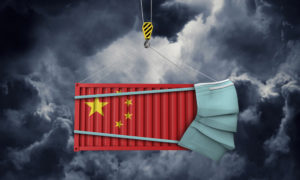
NED Forum/shutterstock
As anti-racism protests sweep across the US, Beijing has seized upon them to hit back at Washington for supporting last year’s Hong Kong pro-democracy demonstrations, the BBC reports:
Chinese state media have given extensive coverage to the protests, highlighting the chaotic scenes and alleged police brutality in America to claim that China enjoys greater social stability. Chinese diplomats are attempting to portray Beijing as a responsible global leader, standing in solidarity with other countries in condemning the racial disparity and injustice in the US.
Both the US and China are contending with a high level of domestic instability triggered by the global coronavirus pandemic and political events, says Aynne Kokas, senior faculty fellow with the University of Virginia’s Miller Center for Public Affairs.
“Now is a key moment through which China is able to leverage the lack of stability in the US, in order to more efficiently promote its own national security goals,” she adds.
“Given its systemic human rights problems,” said one Chinese commentator, “the U.S. should stop priding itself as a beacon of democracy and liberty.”
“The death of George Floyd has reopened the deepest wound of American racism,” said Zhang Yonghe, standing director of the China Society for Human Rights Studies, in an interview with Chinese Communist Party propaganda outlet China.org.cn.
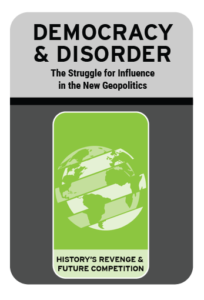 But the notion that the United States cannot effectively speak to human rights abroad when it fails to uphold them at home is dismissed by Brookings analyst Tamara Cofman Wittes. Indeed, for U.S. diplomats abroad, rights abuses by the U.S. government or by state and local authorities present a real challenge for their mandate to support human rights protections in their host countries. But that it is challenging does not mean it is impossible, and it most certainly does not mean that U.S. rights advocacy is undesirable or immoral, she writes:
But the notion that the United States cannot effectively speak to human rights abroad when it fails to uphold them at home is dismissed by Brookings analyst Tamara Cofman Wittes. Indeed, for U.S. diplomats abroad, rights abuses by the U.S. government or by state and local authorities present a real challenge for their mandate to support human rights protections in their host countries. But that it is challenging does not mean it is impossible, and it most certainly does not mean that U.S. rights advocacy is undesirable or immoral, she writes:
By contrast, to insist that we must first “get our house in order” before speaking to others’ oppression, to be so ashamed by our own shortcomings that we refrain from calling out abuses abroad, and thus to withhold our solidarity from the abused, would itself be an act of moral abdication. As my friend Adham Sahloul wrote this weekend: “The people in the Hong Kong’s and Idlib’s of the world don’t have time for our spiritual reclamation sessions.”
“America’s adversaries are having a field day with developments in the United States,” Peter Trubowitz, director of the United States Centre at the London School of Economics, told FRANCE 24. “Clearly the focus is not on a domestic audience but rather this is an opportunity to score points internationally to highlight what they believe is hypocrisy in the American position.”
“They want to suffocate us as they suffocated this young African American,” said Nicolas Maduro, president of Venezuela. “They want to suffocate us here in the jugular,” he added, pointing to his neck in a national TV address.
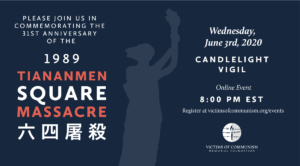 “I think the administration is going to find itself in a very difficult position,” Trubowitz said, noting that on the anniversary of the Tiananmen Square massacre, US statements “don’t ring true, for many people they won’t have the same kind of credibility.”
“I think the administration is going to find itself in a very difficult position,” Trubowitz said, noting that on the anniversary of the Tiananmen Square massacre, US statements “don’t ring true, for many people they won’t have the same kind of credibility.”
U.S. allies and friends are “dismayed and, you know, shaken by this. They want to have faith in us,” said the Atlantic Council’s Daniel Fried, a National Endowment for Democracy (NED) board member, who spent 40 years in the foreign service working mostly on Central and Eastern Europe.
“Soviet propaganda would always talk about, you know, discrimination and lynchings in the South, as if it justified what they were doing. So this is not new; it’s old,” he told NPR’s Michele Kelemen:
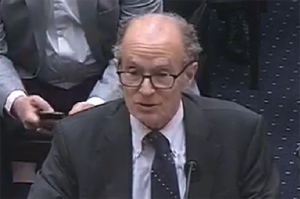
ACUS
Fried (right) says the best way to confront such propaganda is to be honest about America’s failings, as the U.S. ambassador to Zimbabwe was this week. The ambassador, Brian Nichols, who’s African American, put out a statement saying the police killing of George Floyd left Americans in horror and anger. But the country has always aspired to be better, he writes, and Americans will continue to speak out for justice, whether at home or abroad. Fried says that’s what American partners want to hear.
A commitment to advancing democracy abroad “does not blind us to the instances where democracy in the United States struggles to cure a deep wound,” said Dr. Daniel Twining, President of the International Republican Institute (IRI).
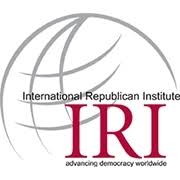 The brutal murder of George Floyd – and all other victims of racist violence – reminds us of our deep commitment to human rights, among which is combating racism, and compels us to reiterate our commitment to universal democratic principles, he added:
The brutal murder of George Floyd – and all other victims of racist violence – reminds us of our deep commitment to human rights, among which is combating racism, and compels us to reiterate our commitment to universal democratic principles, he added:
- The right to speak freely, to protest peacefully, and to express dissent are fundamental and must be respected and protected;
- Free societies are strengthened, not threatened, by peaceful dissent and democratic accountability;
- While democracy cannot function without law and order, violence against peaceful protestors is not acceptable in a free society.
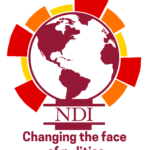 The recent high-profile deaths of Floyd, Breonna Taylor and Ahmaud Arbery have confronted the United States anew with the violent deficiencies of its racial past and present – our too-long, incomplete journey toward justice, equal rights and dignity for all, the National Democratic Institute’s Derek Mitchell adds, citing Martin Luther King’s celebrated Letter from a Birmingham Jail:
The recent high-profile deaths of Floyd, Breonna Taylor and Ahmaud Arbery have confronted the United States anew with the violent deficiencies of its racial past and present – our too-long, incomplete journey toward justice, equal rights and dignity for all, the National Democratic Institute’s Derek Mitchell adds, citing Martin Luther King’s celebrated Letter from a Birmingham Jail:
As global citizens, inspired by Dr. King’s belief in an “inescapable network of mutuality,” all of us at NDI will continue to advance those same goals internationally, proud and humbled to stand alongside countless courageous partners around the world standing up – or kneeling down – for their rights, and who will not rest before they receive the justice, equality and dignity too long denied.
But some observers question an analysis based on the New York Times’ deeply flawed ‘1619’ agenda – the notion that racism is America’s ineradicable Original Sin. The same US that twice elected an African American as President is now deemed to be incorrigibly racist from birth? Isn’t the rhetorical overkill of ‘post-racial America’ that greeted Obama’s election now being matched by today’s polemical excess of white supremacy and institutional racism?
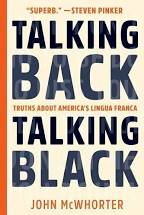 African-American scholar John McWhorter (below), the author of Talking Back, Talking Black: Truths About America’s Lingua Franca (2017), has dismissed the pieties of “third-wave antiracism” as “a profoundly religious movement” whose scripture dictates that “whites are permanently stained by their white privilege,” can only be absolved “by eternally attesting to it,” until the “Judgment Day” arrives when “America comes to terms with race.”
African-American scholar John McWhorter (below), the author of Talking Back, Talking Black: Truths About America’s Lingua Franca (2017), has dismissed the pieties of “third-wave antiracism” as “a profoundly religious movement” whose scripture dictates that “whites are permanently stained by their white privilege,” can only be absolved “by eternally attesting to it,” until the “Judgment Day” arrives when “America comes to terms with race.”
“Antiracism as a religion, despite its good intentions, distracts us from activism in favor of a kind of charismatic passivism,” he writes. “A compact program of on-the-ground policy changes could do vastly more than articulate yearnings for a hypothetical psychological revolution among whites that no one seriously imagines could ever happen in life as we know it.”
The recent murder of George Floyd —followed by nationwide protests and a heavy security response—has raised difficult questions about the persistence of racism, constitutional rights to protest, and the appropriate use of government security services in the United States, the CSIS Africa Program notes. In an effort to to flip the script by featuring African views on U.S. politics, its “Africa Reacts” series asked prominent African journalists, civil society activists, and thought leaders for their views on the current crisis. RTWT







